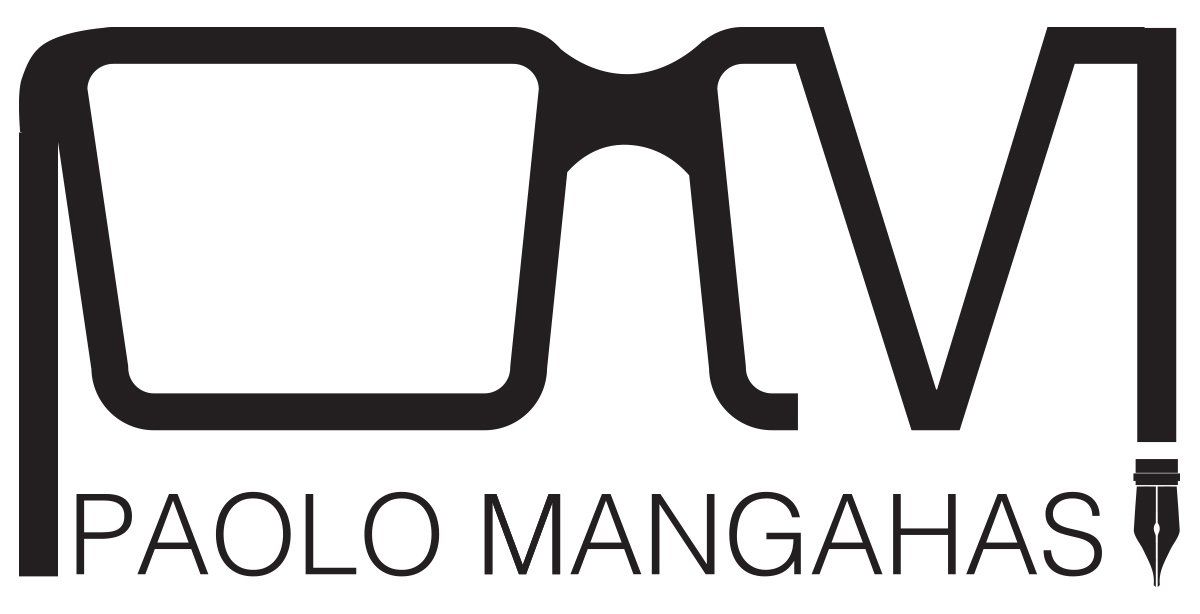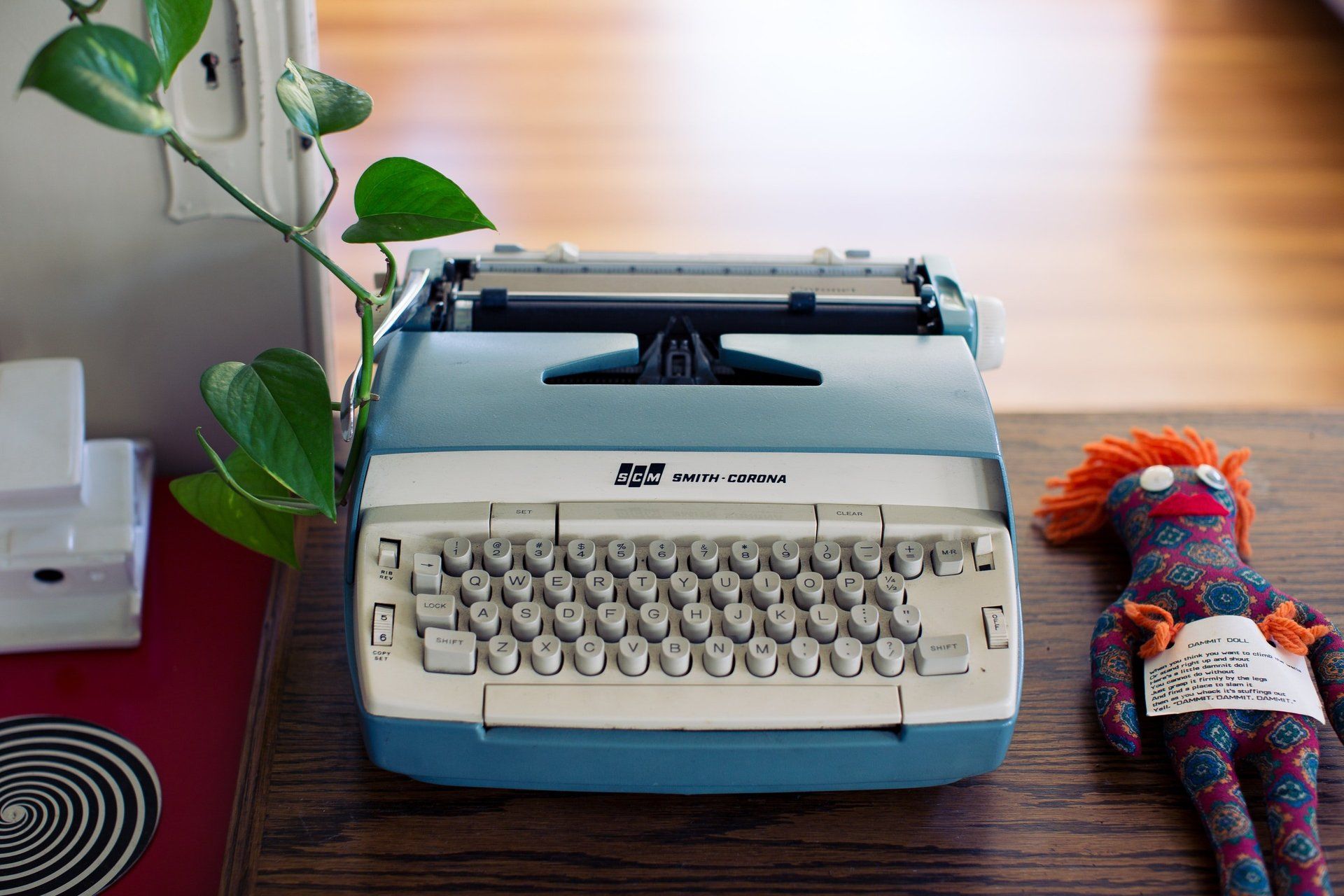ESSAY: Unwrapped
Unwrapped
Santa gave me a typewriter when I was 10. It was a toy typewriter, and one of the best Christmas
presents I've ever received. That particular Christmas was an exceptionally memorable one, not just because I received a gift I actually liked (I was very hard to please), but also because it marked the end of years of fraud and deception my parents methodically inflicted upon my brother and me.
It was the Christmas we discovered that Santa Claus and my parents were one and the same.
A few weeks before this disheartening revelation, I instigated a plot with Miguel, my older brother, to ransack our house in search of our would-be Christmas presents while our parents were away. After what seemed like hours of rummaging through drawers and cabinets, we finally found our gifts—haphazardly perched high above my mother’s disorganized closet, looking pristine in their unwrapped state alongside the jumble of other fascinating knick-knacks she managed to accumulate through the years.
My eyes quickly jumped to a shiny box with a photograph of a typewriter, and I knew right then and there, with absolute certainty, that it was mine. At that point, Miguel was having his own epiphany, staring upwards in awe of the treasures that awaited us. But I had no time to waste. Hurriedly, I climbed his back to reach for that one magical box as he firmly stood there gawking intently at his own gift. We “tested” the merchandize for a few hours, and then neatly returned them to their not-so-secret hiding place.
Miguel and I managed to hold our excitement the following weeks, up until Christmas Eve, when our parents handed us two sets of gifts, one from them and one from dear old Santa. The size, shape, and weight of the gift-wrapped box that allegedly came from that jolly old fellow looked suspiciously familiar to me. I slowly unwrapped the gift as my mother hovered and smiled at me. Then there it was—the photograph of a typewriter peeking through the partially torn gift-wrapping paper. Miguel and I looked at each other incredulously, while my liar of a mother recounted how this gift just miraculously appeared under our Christmas tree.
My brother and I tried our best to keep our lost innocence a secret for as long as we could, not because we were afraid of hurting our parents’ feelings, but because we wanted to continue receiving presents from Santa. But when we each received just one gift from our parents the following Christmas, we both knew they were on to us.
Reluctantly, we had to accept the dawning of a new era—also known as growing up.
From then on (and throughout my childhood), I never received anything quite as inspiring as that typewriter.
My typewriter had all the features of a real one, except that the letters were all in uppercase. Composing a supposedly cordial letter on this typewriter would've given one the impression that the writer was fuming mad, wasting no time in stressing his point in BOLD, CAPITAL LETTERS. The outer shell was made of light blue plastic and looked very sleek and trendy. It also had a tiny bell that rang when one reached the end of the margin.
Like a laptop, I proudly carried my typewriter everywhere I went: to the grocery with my mother; to the playground with our nanny; and even up on the roof of our house, where I pretended to be a spy with secretarial inclinations (to help explain to myself why I had a typewriter for a weapon instead of a gun). While playing pretend games, I always ended up being a clerk and Miguel would be my boss, for whom I obediently typed memo after memo:
DEAR CUSTOMER, COME BACK TO OUR STORE.
All my memos somehow had a loud, angry tone, thanks to the all-caps feature of my portable machine.
GIVE US YOUR MONEY. WE WANT YOUR MONEY.
My official memos might as well have been ransom notes.
From playing an administrative clerk, I then moved on to becoming a bank officer with an attitude. I dragged my feet to face clients (played by my younger sister) and took delight in making people wait in line while I finished typing a mountain of forms. This was when I discovered the joys of using carbon paper, making duplicates, even triplicates, of everything. By this time, I had already set up my own office space in the corner of my room. It was my own little bureaucratic kingdom. “Sorry, ma’am, you’re at the wrong window. Please proceed to Window 2.”
I went through a typing frenzy over the next few months. I kept on typing and never grew tired of it. I typed anything and everything I felt like typing. I typed conversations I heard on TV; I typed song lyrics I heard on the radio; I typed words and sentences from books, magazines, and the encyclopedia.
I was typing away like a frazzled journalist on a deadline. The sound of keys sturdily and mechanically hitting paper fed my spirit, as if every loud tap was molding me into something I had yet to discover.
With the incessant and maddening sound of tapping keys that reverberated throughout our house every single day, my parents were beginning to regret their decision of giving me a typewriter. It was like coming home to a government office. Well, they only had Santa to blame for that.
Soon enough, typing turned into writing. I started writing poems and short stories. My little toy typewriter became an extension of my 10-year-old mind. It became my portal to a creative universe where I was free to invent life—in bold, capital letters.
I was fascinated by the power of being able to create something out of nothing—how a blank sheet of paper could suddenly become art through the creative stringing of thoughts and ideas into words and stories on paper. It came as no surprise then that I grew up keeping things to myself and typing them on paper, where everything I had to say was readily welcomed without judgment. Writing kept me safe, and was a sure way to be understood; it validated my existence.
Due to my heavy, industrial-level usage, my typewriter soon succumbed to wear and tear. Its former sleek and shiny exterior was now a mass of stickers (mostly Sesame Street characters) and a showcase of battle scars earned from carbon paper and all that spying on the roof. The ink roll slowly faded into nothing, and after a while, I had to rely on extra-heavy key tapping just to make deep indentations on the paper. I was typing so hard that my periods were actual holes on the paper. Reading my work was like a blind person reading Braille. My favorite toy slowly broke down before my eyes, but my resolve to keep churning out words only strengthened, even way after I finally typed my last uppercase letter on that plastic machine.
It was through all that typing that I knew I wanted to become a writer, or at least be in a creative field that required it. If gifts were any real indication of a person’s career destiny, then my brother could've been a successful murderer (he got a pellet air gun that year). Thank goodness he had other plans; otherwise Santa would have a lot of explaining to do.
To this day, I’m not sure why my father bought me that gift during one of his trips to the US (or in keeping with their lie, the North Pole). But I suspect it was because somehow, he knew something that I didn’t know back then—that I always had a story just waiting to be told.
Today, as a working writer (I now use a laptop), I still fondly look back on that seemingly ordinary yet pivotal Christmas when I gave up Santa for a little blue typewriter.
It was truly a time of innocence lost, but purpose found.

